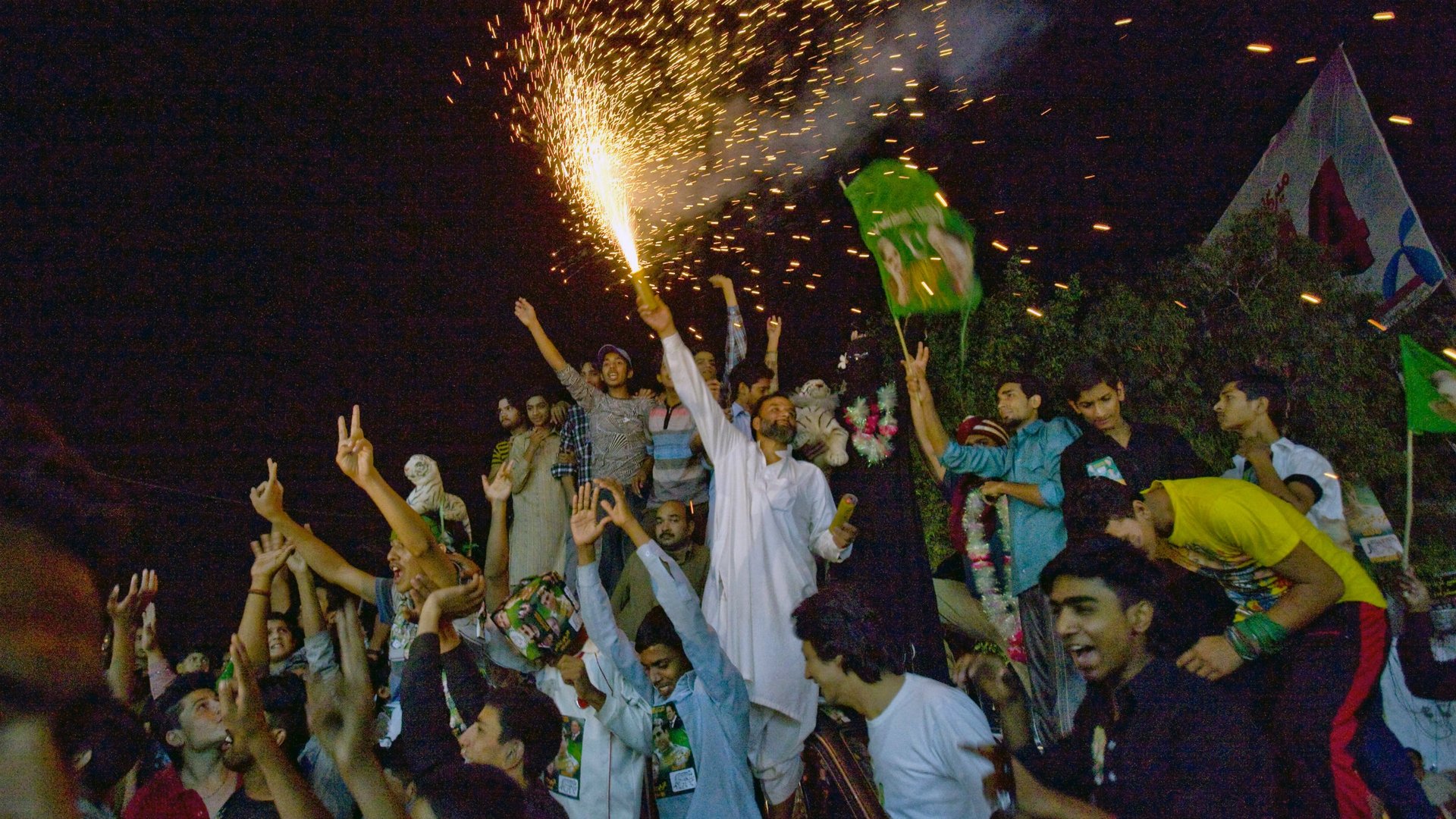Can Sharif do better in Pakistan this time around?
Nawaz Sharif is back in Pakistan’s top job—for the third time. Sluggish economic growth, widespread crippling power cuts, daily political violence and a possible IMF bailout are all big problems he will have to deal with. So what can we expect from this wealthy steel tycoon?


Nawaz Sharif is back in Pakistan’s top job—for the third time. Sluggish economic growth, widespread crippling power cuts, daily political violence and a possible IMF bailout are all big problems he will have to deal with. So what can we expect from this wealthy steel tycoon?
First, he’s not wasting any time. Even before all the votes from Saturday’s election were counted, he let slip plans to name senator Mohammad Ishaq Dar as finance minister. Dar, an accountant, was finance minister under Sharif in the 1990s, when he negotiated IMF assistance. He told Reuters in a recent interview that Sharif’s Pakistan Muslim League was not committed to any bailout package, but he has plans to collect agricultural taxes from provincial governments—a controversial measure. The senator’s most immediate problem will be the next budget, for which he has only until June to prepare.
Investors are clearly positive about Sharif’s return to power. The KSE 100 stock exchange index jumped 1.6% to a record high on Monday, the first day of trading after the election, as it began to appear that Sharif would win. (The FT points to a similar situation in February 1997 when Sharif last won power and the market rallied 8.5%, only to fall 25% by the time he was ousted in a 1999 coup.)
Pakistan is plagued by a multitude of problems that has deterred foreign investment, not least widespread violence, corruption and a lethargic public sector. Frequent electricity outages can last up to 20 hours, and economic growth has slowed from over 7% in 2005-6 to around 3% in 2012-13. All this has deterred foreign investment, in turn hitting foreign exchange reserves, which are down 40% from a year ago. If Pakistan is unable to solve its balance of payments crisis, the country may have to seek IMF assistance.
Leaders in Sharif’s party say that they intend to address the problem of state sector inefficiencies by following up on a policy from 1997 when private sector commercial bankers were appointed to run state-owned banks. The policy was largely successful, leading to privatization and a return to profit in several cases.
But by far the greatest problem underpinning economic malaise in Pakistan is an ongoing violent Islamist campaign led by the Pakistani Taliban. Sharif has indicated that he intends to seek both closer ties to the US and negotiations with the Taliban. From the sometime conservative and US critic, this is an encouraging sign.